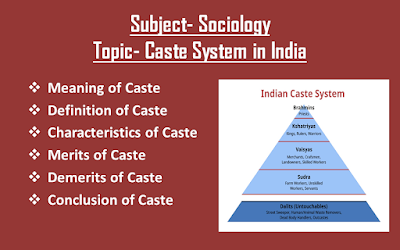Social System- Meaning, Definition and Charateristics
A social system refers to a network of relationships, institutions, and structures that shape the interactions and behaviors of individuals within a society.
A social system is a complex, dynamic, and interconnected web of relationships, norms, values, and institutions that govern human behavior and interactions.
Examples of social systems include family systems, community systems, economic systems, political systems, etc.
# Definition of Social System
1. According to Karl Marx:- "A social system is a complex of social relations, shaped by economic and class structures, that govern human behavior and interactions."
2. According to Max Weber:- "A social system is a network of social relationships, influenced by power, authority, and rationalization, that shape human action and interactions."
3. According to Robert LaPiere:- "A social system is a network of interdependent roles, norms, and institutions that shape the behavior and interactions of individuals and groups within a given society. "
4. According to Talcott Parsons:- "A social system is a pattern of interrelated components, including individuals, groups, and institutions, that work together to maintain social order and achieve collective goals."
# Characteristics of Social System
1 Interconnectedness:- Social systems consist of interconnected components, such as individuals, groups, and institutions.
2. Complexity:- Social systems are complex, with multiple factors influencing behavior and outcomes.
3. Dynamic:- Social systems are constantly changing, adapting to internal and external factors.
4. Institutional framework:- Social systems are shaped by institutions, such as family, education, economy, and government.
5. Norms and values:- Social systems are influenced by shared norms, values, and beliefs.
6. Power dynamics:- Social systems involve power relationships, with some individuals or groups holding more influence than others.
7. Self-regulation:- Social systems have mechanisms for self-regulation, such as social control and conflict resolution.
8. Adaptation:- Social systems adapt to internal and external changes, such as technological advancements or economic shifts.
9. Evolution:- Social systems evolve over time, with changes in institutions, norms, and values.
10. Influenced by Culture:- Social systems are influenced by shared culture, including language, customs, and traditions.
Watch video on YouTube





